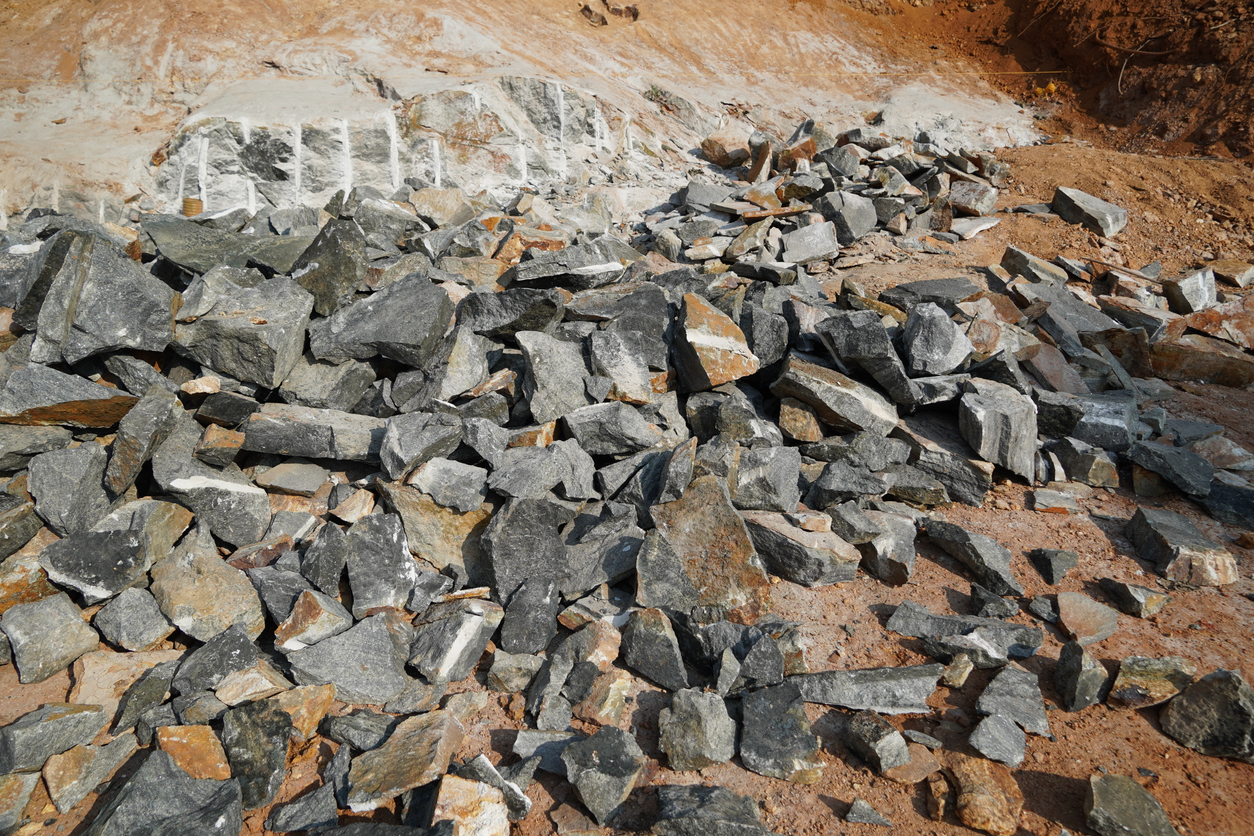Exploring the Lithium Market: How Wigmore Trading Supplies Trusted Lithium Ore Miners
Exploring the Lithium Market: How Wigmore Trading Supplies Trusted Lithium Ore Miners
Are you ready to dive into the booming lithium market? Look no further, because Wigmore Trading is here to guide you through this electrifying industry! With the increased demand for electric vehicles and renewable energy storage, lithium has become an essential component in our ever-evolving world. In this blog post, we will explore how Wigmore Trading supplies trusted lithium ore miners, ensuring a sustainable and reliable source of this invaluable resource. Get ready to uncover the secrets behind the growth of this dynamic market and discover how you can be part of its success with Wigmore Trading by your side. Let’s embark on this exciting journey together!
Introduction to the Lithium Market
Introduction to the Lithium Market
Lithium is a highly valuable natural resource that has been gaining significant attention in recent years due to its increasing demand in various industries. It is a soft silvery-white metal with the atomic number 3 and is the lightest solid element known to man. This versatile metal has unique properties that make it an essential component for many modern technologies, including batteries, ceramics, lubricants, and more.
The demand for lithium has been steadily rising in recent years, primarily driven by the growing usage of rechargeable batteries in electronic devices such as smartphones, laptops, and tablets. However, it is the booming electric vehicle (EV) industry that has significantly increased the demand for lithium. As governments around the world are pushing for greener transportation solutions to combat climate change and reduce carbon emissions, EVs have become increasingly popular among consumers.
According to a report by Grand View Research, Inc., the global lithium market size was valued at USD 5.2 billion in 2019 and is projected to reach USD 82.3 billion by 2027, growing at a compound annual growth rate (CAGR) of 28.4% from 2020 to 2027. This massive growth can be attributed to various factors like increasing investments in renewable energy sources and government initiatives promoting clean energy solutions.
Why is Lithium in High Demand?
Lithium is a highly sought after metal that has been gaining immense popularity in recent years due to its versatile properties and use in various industries. In this section, we will delve deeper into the reasons behind the high demand for lithium and its impact on the market.
1. Growing Demand for Electric Vehicles
One of the primary drivers of lithium demand is the increasing adoption of electric vehicles (EVs) around the world. With governments and consumers alike shifting towards more sustainable modes of transportation, there has been a significant rise in EV sales, leading to a surge in demand for lithium-ion batteries. These batteries are essential components of EVs, making up about 40% of their production cost. As such, a rise in EV production directly translates to an increased need for lithium.
2. Advancements in Renewable Energy Storage
The push towards renewable energy sources such as wind and solar power has also contributed to the high demand for lithium. With these sources being intermittent, efficient energy storage solutions are crucial for their widespread adoption. Lithium-ion batteries have emerged as one of the most reliable options for storing renewable energy, further driving up their demand.
3. Consumer Electronics Industry
Apart from transportation and energy sectors, another major consumer of lithium is the electronics industry. The ever-growing market for smartphones, laptops, tablets, and other electronic devices relies heavily on rechargeable lithium-ion batteries due to their lightweight and long-lasting nature.
Types of Lithium Ore and their Uses
Lithium is a highly sought-after mineral due to its numerous industrial and technological applications. It is commonly used in the production of rechargeable batteries, ceramics, glass, and lubricants. As demand for lithium continues to rise, it is important to understand the different types of lithium ore and their uses in order to make informed decisions in the market.
1. Spodumene
Spodumene is the most common type of lithium ore found on Earth. It is a silicate mineral that contains high concentrations of lithium. This type of ore is typically mined from hard rock deposits and then processed to extract the lithium content. The extracted lithium carbonate or hydroxide can be further refined into battery-grade material, making spodumene a primary source for producing lithium-ion batteries.
2. Petalite
Petalite is another important source of lithium and is often found alongside spodumene deposits. It has a higher concentration of lithium compared to spodumene but also contains other minerals such as aluminum and silicon. This makes petalite more difficult to process for extracting pure lithium compounds, but it still serves as an important source for ceramic and glass production.
3. Lepidolite
Lepidolite is a type of mica mineral that contains significant amounts of both lithium and rubidium. While it has lower concentrations of lithium compared to spodumene or petalite, lepidolite can be processed using advanced technologies like solvent extraction or ion exchange to extract the lithium. It is also used in ceramic and glass production, as well as in some specialty applications such as heat-resistant materials.
4. Amblygonite
Amblygonite is a phosphate mineral that contains high concentrations of both lithium and aluminum. It is typically found in pegmatite deposits and can be processed to produce lithium carbonate or hydroxide for battery production. However, its main use is in ceramics and glass manufacturing due to its unique ability to create a matte finish.
5. Jadarite
Jadarite is a rare type of lithium ore found only in one location in Serbia. It contains high concentrations of both lithium and boron, making it valuable for the production of ceramics, glass, and specialized alloys. While it has not yet been commercially mined, it has the potential to become a major source of lithium in the future.
6. Hectorite
Hectorite is a clay mineral that contains significant amounts of lithium and magnesium. It is typically found alongside other minerals like bentonite or smectite and can be processed to produce lithium compounds for use in batteries and lubricants.
The Role of Wigmore Trading in the Lithium Industry
Wigmore Trading plays a crucial role in the global lithium industry, as it is one of the leading suppliers of high-quality lithium ore to trusted miners. This section will delve deeper into the specific role that Wigmore Trading plays in this ever-growing market.
Lithium has become an essential resource in recent years due to its use in various industries such as electric vehicle production, energy storage systems, and consumer electronics. As demand for these products continues to increase, so does the need for reliable sources of lithium. This is where Wigmore Trading comes in.
As a supplier of trusted lithium ore, Wigmore Trading works closely with reputable miners to ensure a steady supply of high-grade lithium. The company has established strong relationships with mines all over the world, including some of the largest producing regions such as Australia and South America.
One major aspect that sets Wigmore Trading apart from other suppliers is their commitment to ethical and sustainable sourcing practices. The company only works with miners who adhere to strict environmental regulations and uphold fair labor standards. This not only ensures a responsible supply chain but also helps support local communities where mining operations take place.
In addition to ethical sourcing practices, Wigmore Trading also prides itself on providing consistently high-quality lithium ore. The company has stringent quality control measures in place to ensure that all batches meet industry standards and customer requirements. This is achieved through rigorous testing processes and continuous monitoring of mining operations.
The Process of Supplying Lithium Ore to Buyers
The process of supplying lithium ore to buyers is a crucial aspect of the overall lithium market. It involves multiple steps and requires coordination between various parties, including suppliers, miners, and buyers. In this section, we will provide a detailed explanation of how Wigmore Trading supplies trusted lithium ore miners and the process they follow to ensure a smooth and efficient supply chain.
1. Identification of Reliable Suppliers: The first step in the process is identifying reliable suppliers who can provide high-quality lithium ore. Wigmore Trading has established strong relationships with trusted suppliers over the years, ensuring a steady supply of quality material.
2. Evaluation of Mining Operations: Once potential suppliers are identified, Wigmore Trading conducts a thorough evaluation of their mining operations. This includes assessing their mining techniques, quality control measures, environmental impact, and compliance with industry standards.
3. Negotiations and Contracts: After evaluating the mining operations, negotiations take place between Wigmore Trading and the selected supplier to agree on terms such as pricing and delivery schedules. Contracts are then signed to formalize the agreement between both parties.
4. Inspections and Quality Control: To ensure that only high-quality lithium ore is supplied to buyers, inspections are conducted at regular intervals by Wigmore Trading’s team of experts. This includes testing for chemical composition, moisture content, and impurities that could affect its usability in different applications.
Benefits of Working with Wigmore Trading
There are numerous benefits to working with Wigmore Trading when it comes to supplying trusted lithium ore miners. As a leading supplier in the lithium market, Wigmore Trading prides itself on providing high-quality products and exceptional customer service. In this section, we will delve into the specific advantages of partnering with Wigmore Trading for your lithium ore needs.
1. High-Quality Products:
At Wigmore Trading, we understand the importance of quality when it comes to lithium ore. Our team works closely with our trusted miners to ensure that all our products meet the highest standards of purity and consistency. This allows our clients to have peace of mind knowing they are receiving top-grade materials for their operations.
2. Competitive Pricing:
In addition to providing high-quality products, Wigmore Trading also offers competitive pricing in the market. We believe that access to reliable and affordable sources is crucial for any business, which is why we strive to keep our prices competitive without compromising on quality.
3. Wide Range of Products:
Wigmore Trading offers a wide range of lithium ore products including spodumene, lepidolite, amblygonite, and petalite – all sourced from reputable mines around the world. This variety allows us to cater to different needs and requirements of our clients in various industries such as battery manufacturing, ceramics, glassmaking, and more.
Challenges in the Lithium Market
The lithium market has experienced significant growth in recent years, driven by the increasing demand for lithium-ion batteries in various industries such as electric vehicles, renewable energy storage systems, and consumer electronics. This surge in demand has led to a rise in lithium prices and attracted new players to enter the market. However, along with these opportunities come challenges that must be addressed by both suppliers and buyers.
One of the major challenges facing the lithium market is supply chain disruptions. The majority of the world’s lithium reserves are located in South America, particularly in Chile and Argentina. These countries have been affected by political instability, labor strikes, and environmental concerns that have disrupted mining operations and caused delays in production. This has resulted in supply shortages and price fluctuations that can significantly impact companies dependent on lithium for their products.
Another challenge is the complexity of extracting and processing lithium ores. Unlike other mineral resources such as copper or gold, which can be extracted through traditional mining methods, most of the world’s lithium comes from brine deposits or hard rock minerals that require specialized extraction techniques. These processes are expensive and time-consuming, making it difficult for miners to keep up with the growing demand for lithium.
Furthermore, there is also concern about sustainability within the industry. Lithium mining requires large amounts of water and energy, leading to environmental concerns over its long-term impact on local ecosystems. Additionally, there have been reports of ethical issues related to child labor involved in some small-scale mining operations.
Conclusion: The Future of the Lithium Market
The future of the lithium market is a topic that has been gaining significant attention in recent years. As the demand for lithium continues to rise, due to its crucial role in powering electronic devices and electric vehicles, it is essential to understand what lies ahead for this valuable mineral.
One of the key factors driving the future of the lithium market is the increasing shift towards renewable energy sources. With countries all over the world setting ambitious targets for reducing carbon emissions, there is a growing need for efficient and sustainable energy storage solutions. Lithium-ion batteries have emerged as a leading technology in this field, making them an integral part of our transition to a cleaner and greener future.
Moreover, with major automakers investing heavily in electric vehicle production, it is expected that the demand for lithium will continue to soar. According to a report by BloombergNEF, sales of electric vehicles are projected to increase from 2.1 million units in 2019 to 54 million by 2040. This represents a significant opportunity for growth in the lithium market, as each electric vehicle requires large quantities of lithium-ion batteries.








Comments are closed.